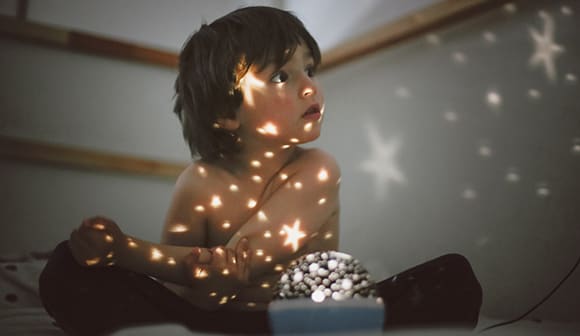Autism in toddlers
Early signs of the spectrum.
Article Author: Guest Columnist
Article Date:

Our guest columnist is Lee Ann Annotti, PhD, a licensed psychologist with Baptist Behavioral Health and Wolfson Children’s Behavioral Health.
When you have a toddler, every day is a learning experience – for your little one and for you as a parent. You watch them grow, develop and experience the world around them for the first time. With each new stage comes physical and developmental milestones, and some parents may notice signs their child is delayed in meeting them.
Then, the questions: When will she start to smile? Is he just a late talker? Could my child have an autism spectrum disorder (ASD)?
Signs of ASD are grouped into two categories:
- Social communication skills
- Behavioral differences
Common signs of autism by age
Children reach physical and cognitive milestones at a variety of different paces, the vast majority of which are considered normal. However, here are a few of the potential signs of an autism spectrum disorder your child’s pediatrician may look for, broken down by age.
- 12 months: Doesn’t look in your direction when you call his or her name and displays limited eye contact.
- 18 months: Limited use of gestures like pointing or facial expressions. Instead, a child with an autism spectrum disorder may whine or cry to express a need or lead a caretaker by the hand to show them what he or she wants (hand-leading). Though the child laughs or smiles, he or she makes limited eye contact.
- 24 months: Minimal interactive play with others. The toddler may bring toys to a parent to help open or fix something, but won’t make eye contact or play with the parent or other children.
Early autism intervention improves outcomes
The earlier a child is diagnosed and begins intervention, the better. Some of the earliest signs of a potential autism spectrum disorder include:
Social communication differences
- Very quiet or very fussy temperament as a baby
- Little to no eye contact
- Doesn’t follow a parent’s finger or gaze
- No pointing
- Loss of previously developed language skills
- Little or no expression in response to parent’s smile or other emotions
- Minimal facial expressions
- Difficulty noticing other people’s emotions or showing empathy
- Preference of playing alone or difficulty making friends
- Responds to sounds but not his or her own name
- Repetition of sounds, words or phrases said by others
- Good memory for numbers, songs or TV shows
Behavioral differences
- Rocks, spins or sways
- Twirls fingers or flaps hands
- Prefers routine, order or rituals
- Favors limited activities which are performed repeatedly
- Plays with parts of a toy (like the wheel of a truck) rather than the whole toy
- Able to read at early age but doesn’t understand material
- Sensitivity (or lack thereof) to smells, sounds, textures, touch or pain
- Unusual or intense interest in topics or activities
Though many of these behaviors can be attributed to normal childhood development at certain ages, it’s always beneficial to meet with your pediatrician to discuss your concerns.
If you’re looking for a pediatrician for your family, call 904.202.4YOU (4968) or fill out the appointment request form. The Wolfson Children’s Rehabilitation Autism and Neurodevelopment Center provides early intervention for children as young as 18 months. To learn more about the program, call 904.202.4200.



